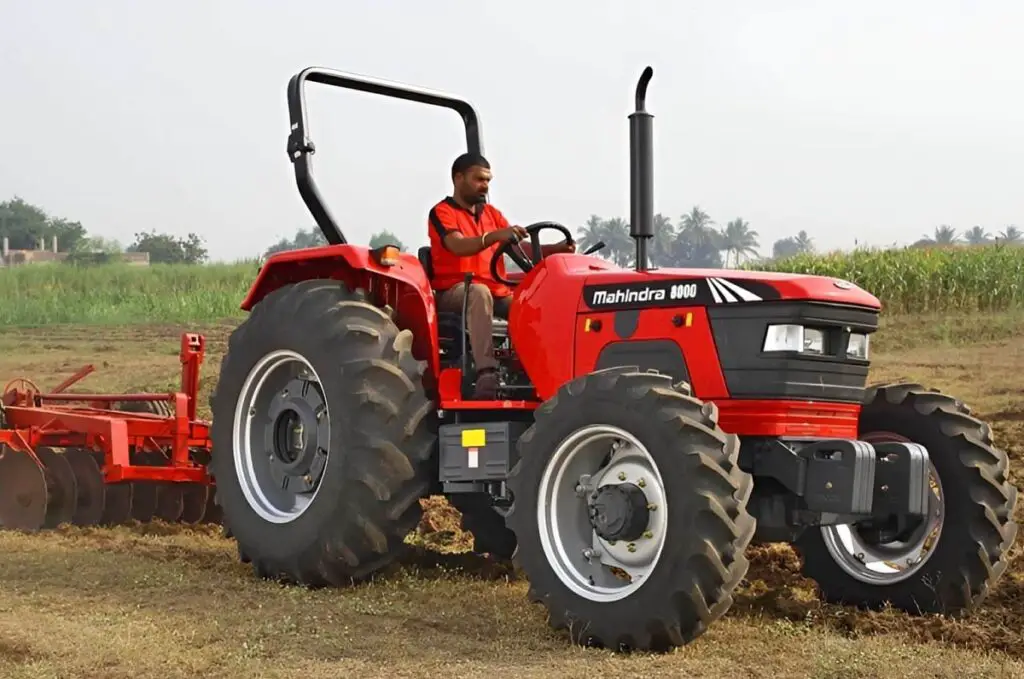- Vehicle maker Mahindra has agreed in principle to set up a tractor assembly plant in Tanzania to assemble 2,000 tractors annually.
- Across Tanzania, the demand for mechanization of on-farm activities is steadily increasing.
- In her India tour, President Samia Suluhu entered into a deal enabling Tanzanian farmers to sell 200,000 tonnes of pigeon peas annually to the country.
The Tanzania manufacturing industry is poised to welcome an additional player in the tractor manufacturing sector, courtesy of Mahindra India. Tractors are fast becoming a common sight in Tanzania, and the current administration is committed to turning this into a reality.
Over the past few decades, agriculture has evolved into a fundamental source of economic growth in Tanzania. Concurrently, the demand for mechanization of on-farm activities is steadily increasing. Consequently, the manufacturing industry finds itself at the heart of processing local agricultural products.
In line with this, the government is intensifying its efforts to step up local production. President Samia Suluhu Hassan’s four-day visit to India resulted in an agreement for Mahindra to establish a tractor assembly plant in Tanzania.
Mahindra plant to assemble 2,000 tractors annually
According to Minister for Agriculture, Hussein Bashe, “Mahindra and Mahindra have agreed in principle to set up a tractor assembly facility in Tanzania with the capacity to assemble 2,000 tractors annually,” he announced. Moreover, crucial steps have already been taken, including a feasibility study to determine the viability of such a facility in Tanzania.
The Tanzania Investment Centre (TIC) argues that the manufacturing sector is in its early stages, with few areas that have been fully explored, primarily in the processing of unprocessed agricultural commodities, which constitute major exports.
The country’s recent development agenda has placed industrial development high on its list of policy priorities. Policymakers are dedicated to transforming the country’s economy from one characterised by low productivity and growth to a dynamic, high-productivity economy associated with structural change and sustained income growth.
TIC notes that the manufacturing sector has exhibited steady growth over the years, registering an 8.3 percent annual growth rate and making a modest contribution of 8.1 percent to the GDP. Additionally, the sector employs around 306,180 workers, mainly in urban areas.
“The sector employs approximately 306,180 workers, primarily in urban areas. It contributes to the Tanzanian economy through revenue collection from import and export sales, corporate tax, and income tax, providing approximately 18.1 percent of foreign exchange to the government,” according to TIC.
Tanzania evolving into a global player
Nonetheless, Tanzania is positioning itself as a reliable player on the global stage, seeking to attract potential investors. The nation is establishing a dependable energy supply through the construction of state-of-the-art hydropower dams and large-scale natural gas projects, including liquefied natural gas (LNG) plants in partnership with international oil and gas companies.
Despite the challenges and opportunities that have been missed in the Tanzanian manufacturing sector, Tanzania has made strides by assembling a limited number of tractors domestically. The National Development Corporation (NDC) has assembled nearly 770 tractors and 140 ploughs out of the 2,400 tractors and 1,300 ploughs supplied to the market. Consequently, this has reduced dependence on imported implements from Poland.
The efforts made by NDC are set to be complemented by the new agreement with Mahindra. Established in 1945, Mahindra is one of India’s largest vehicle manufacturers.
As part of the “Make in Tanzania” initiative, this partnership will bolster domestic tractor production, ensuring the availability of high-quality, cost-effective farming machinery for local farmers. Mahindra & Mahindra is renowned for its expertise in manufacturing tractors and agricultural machinery, which will contribute to the modernization of Tanzania’s farming practices. This initiative aligns with the country’s vision to enhance agricultural productivity, reduce imports, and empower local farmers.
Read also: Tanzania’s agriculture ambitions fueling grain exportation in East Africa
Tanzania agribusiness
As Tanzania enhances its energy production capabilities, other sectors of production continue to expand, such as pigeon peas.
According to Minister Bashe, the deal brokered by President Samia during her visit to India enables Tanzanian farmers to annually sell an average of 200,000 tonnes of pigeon peas to India.
Likewise, the investment in tractor assembly, which will ultimately give Tanzania increased on-farm efficiency to produce more and serve the growing demand for high-quality Tanzanian farm produce.
According to Minister Bashe, Tanzania and India have reached an agreement that will see the importation of 200,000 tonnes of pigeon peas each year from Tanzania for up to three years.
Processed cashewnuts
“Currently, a kilogram of pigeon peas fetches an average of $1. For the agreed tonnage, we should be talking about a business worth over TSh450 billion per year,” Minister Bashe explained.
Furthermore, the minister argues that the agribusiness sector stands to be transformed on all profitable fronts.
“India imposes an import duty of 35 per cent on processed cashew nuts being imported into the country. However, we have set up a processing factory in Tanzania, and thus, we have agreed with Indian authorities that processed cashew nuts from that factory will not attract import duty,” Minister Bashe added.
Before Mahindra and Mahindra expressed interest in Tanzania’s manufacturing potential, other players had entered the same space, making tractors available in Tanzania. The Tanzanian Quality Group and International Tractors Limited signed a deal in 2016 to establish a $40 million tractor assembly plant in the Morogoro region of Tanzania.
Read also: Uber of tractors; moves to bridge agricultural mechanisation gap in African farms
